Jun 3, 2025 11:25 AM
In Memoriam: Al Foster, 1943–2025
Al Foster, a drummer regarded for his fluency across the bebop, post-bop and funk/fusion lineages of jazz, died May 28…
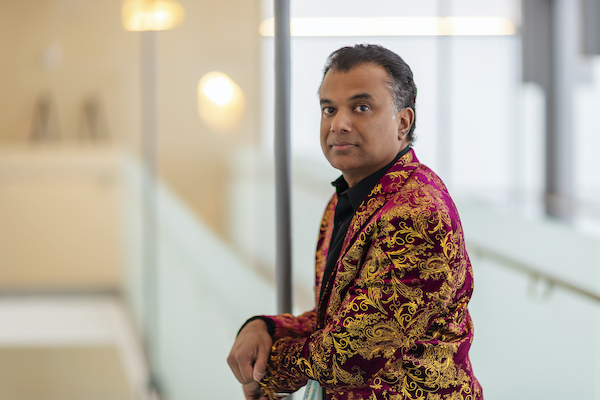
Saxophonist and educator Rudresh Mahanthappa sees a connection between improvising and cooking.
(Photo: David Crow)Recently, saxophonist Rudresh Mahanthappa was making black bean soup at his home in New Jersey. From scratch.
It had been days since the World Health Organization declared COVID-19 a pandemic. And despite any sense of normalcy being decimated, Mahanthappa saw the moment as an opportunity when he’d be able to explore an interest of his that frequently wasn’t the focus of his busy life as a performer and educator.
“I usually don’t have time to actually make a black bean soup from dried beans and not use a pressure cooker,” the bandleader said.
His time in the kitchen since what’s become a lockdown of one in five Americans in an effort to battle the spread of the coronavirus has been documented through a series of posts on Mahanthappa’s social media accounts. If you’re paying attention, you might have come across his apple pie, keema, macaroni and cheese, pumpkin bread, or butter chicken and raita.
“We’ve always gotten a couple of cooking magazines: Bon Appétit and Food & Wine. I think there hasn’t been a time in the last 15 years where we haven’t subscribed to one,” Mahanthappa said, before adding that the New York Times cooking section is another go-to place for recipes. “Some of them are really good. Some of them are things that are horrifying [difficult to prepare].”
Both music and culinary endeavors can and should be seen as an elemental expression of humanity. And if improvising on a horn is perceived to be a preternatural display of creativity, coaxing the nuances out of a dish should occupy the same space in our minds.
“For me, cooking and playing, comedy-slash-storytelling are all coming from a very similar place of things that are structured but have room for improvisation,” Mahanthappa said. “And maybe more than that, to some degree, how do you put things forth that you actually know the outcome of, but you can produce and place them in a spontaneous way in real time? I remember someone saying Sonny Rollins ... had these licks that he’d like to play, but every time they sounded like he was playing them for the first time. I think cooking is a lot like that, too, because if you’re making something that you’ve made 20 times before, somehow it has to have a newness to it. How you bring that to fruition is part of the challenge.”
What’s enabled Mahanthappa to be in the kitchen more than he usually would be, though, is a seemingly endless list of uncertainties musicians currently are facing. Among challenges in the jazz world are re-envisioned instruction for students, whether at a university or college, or for private instruction.
“I’m not teaching classes this semester, so it’s more about making sure my jazz faculty is able to do everything that they need to do, whether it’s classes or lessons, making sure that that’s going smoothly. It’s more supervisory,” said Mahanthappa, who is director of jazz in the Department of Music at Princeton. The university’s spring semester is set to take place online, and the second Princeton University Jazz Festival has been canceled.
While Mahanthappa doesn’t seem to be overwhelmed with doubt about the future, he’s got a Whirlwind album, Hero Trio, set for release on June 19. Dates in early June at New York’s Jazz Standard to support the recording remain in doubt. Fly Higher: Charlie Parker @ 100, a tour he organized with drummer Terri Lyne Carrington to celebrate the saxophonist’s centennial, will take on a radically different form now that spring dates have been canceled or postponed, too.
“I was thinking about it in kind of a bigger way,” Mahanthappa said about the litany of canceled live dates across the world. “I think it would just be really crappy if no one’s playing those gigs, you know, for Charlie Parker’s centennial year.” DB
Updated March 24 to clarify a quote from Mahanthappa.
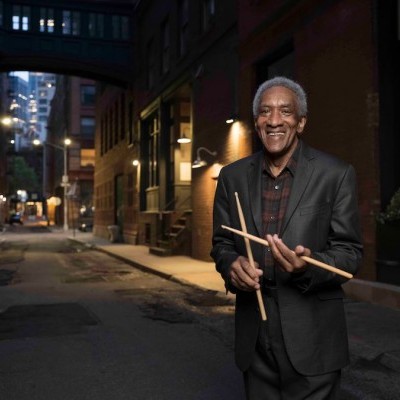
Foster was truly a drummer to the stars, including Miles Davis, Sonny Rollins and Joe Henderson.
Jun 3, 2025 11:25 AM
Al Foster, a drummer regarded for his fluency across the bebop, post-bop and funk/fusion lineages of jazz, died May 28…
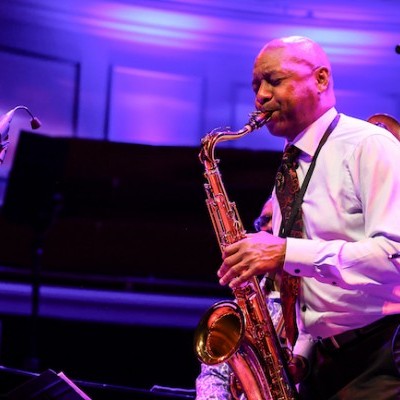
“Branford’s playing has steadily improved,” says younger brother Wynton Marsalis. “He’s just gotten more and more serious.”
May 20, 2025 11:58 AM
Branford Marsalis was on the road again. Coffee cup in hand, the saxophonist — sporting a gray hoodie and a look of…
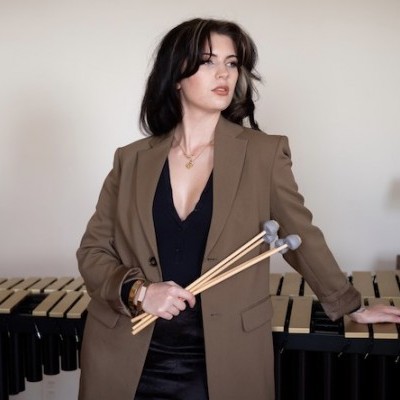
“What did I want more of when I was this age?” Sasha Berliner asks when she’s in her teaching mode.
May 13, 2025 12:39 PM
Part of the jazz vibraphone conversation since her late teens, Sasha Berliner has long come across as a fully formed…

Roscoe Mitchell will receive a Lifetime Achievement award at this year’s Vision Festival.
May 27, 2025 6:21 PM
Arts for Art has announced the full lineup for the 2025 Vision Festival, which will run June 2–7 at Roulette…
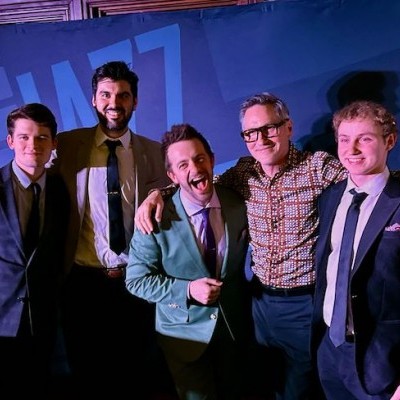
Benny Benack III and his quartet took the Midwest Jazz Collective’s route for a test run this spring.
Jun 3, 2025 10:31 AM
The time and labor required to tour is, for many musicians, daunting at best and prohibitive at worst. It’s hardly…